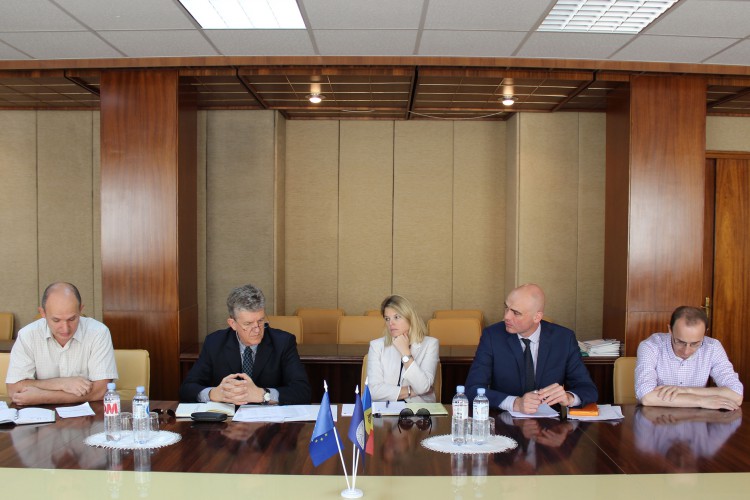Representatives of trade unions, employers and the UN discussed on the achievement of Sustainable Development Goals
A delegation of the United Nations (UN) had a working meeting with representatives of social partners – the National Trade Union Confederation of Moldova (CNSM) and the National Employers’ Confederation of Moldova (CNPM) on Thursday, July 20. It has the mission to consult the Government of the Republic of Moldova in the process of adapting the Agenda 2030 to the national context of our country.
The meeting was attended by Sergiu Sainciuc, vice-president of CNSM, Rodica Popescu, confederal secretary of CNSM and Vladislav Caminschi, executive director of CNPM.
George Bouma, team leader, member of the Sustainable Development Portfolio, Regional Center of the United Nations’ Development Program (UNDP), said that the Republic of Moldova is in the process of elaborating the new National Development Strategy 2030 and the mission is going to contribute to the developing as accurately as possible of the Sustainable Development Goals (SDGs). “The vast majority of SDGs are related to policies in the economic and social fields where the role of trade unions and employers is crucial. At the end of our mission we will come up with a report and recommendations to the governors on how to achieve these goals,” Bouma said.
In his turn, Sergiu Sainciuc mentioned that, in his work, the trade unions are based on the four pillars of the ILO Decent Work Agenda and the Decent Work Country Program 2016-2020 – promoting jobs and enterprises, guaranteeing rights at work, expanding social protection and promoting social dialogue – because they will contribute to the advancement of the whole development agenda.
Rodica Popescu pointed out that SDG no. 3 on Healthy Living and SDG no. 8 on decent work in protecting labour rights and promoting safe working conditions for all workers will be virtually impossible if the role of the State Labour Inspectorate is diminished, namely by withdrawing the supervisory powers in the field of OSH and their distribution to the other 10 control entities.
“At the moment, we must concentrate our efforts on strengthening this control body and not on polarizing its mission,” she said, adding that the trade unionists are also concerned about the quality of the social dialogue, the efficiency of which is necessary to strengthen the institutional capacities of social partners.
Representatives of the foreign delegation were interested in the social partners’ view of the possibilities of economic growth, the factors that caused the decrease of the foreign investment flow in our country and the barriers to the employment of young people and women.
In this context, Sergiu Sainciuc said that the excessive involvement of foreign investors in the Moldovan labour law only affects the rights and interests of the employees. “We support increasing investment and creating new jobs that are very much needed at the current stage, but that should not be to the detriment of employees. Not labour law is the biggest impediment to business development in the Republic of Moldova, but the minimum wage, which is the lowest in the region and makes jobs unattractive, including migration,” Sainciuc said.
Vladislav Caminschi said that one of the biggest problems of the economic agents is the lack of qualified work cadres, caused by their insufficient professional training, but also by the significant difference between wages in the Republic of Moldova and the countries in the region. He also mentioned that young people and women would be excessively protected by labour law, which creates reluctance for employers to fit these two categories into the workplace.
Department of mass media and international relations



